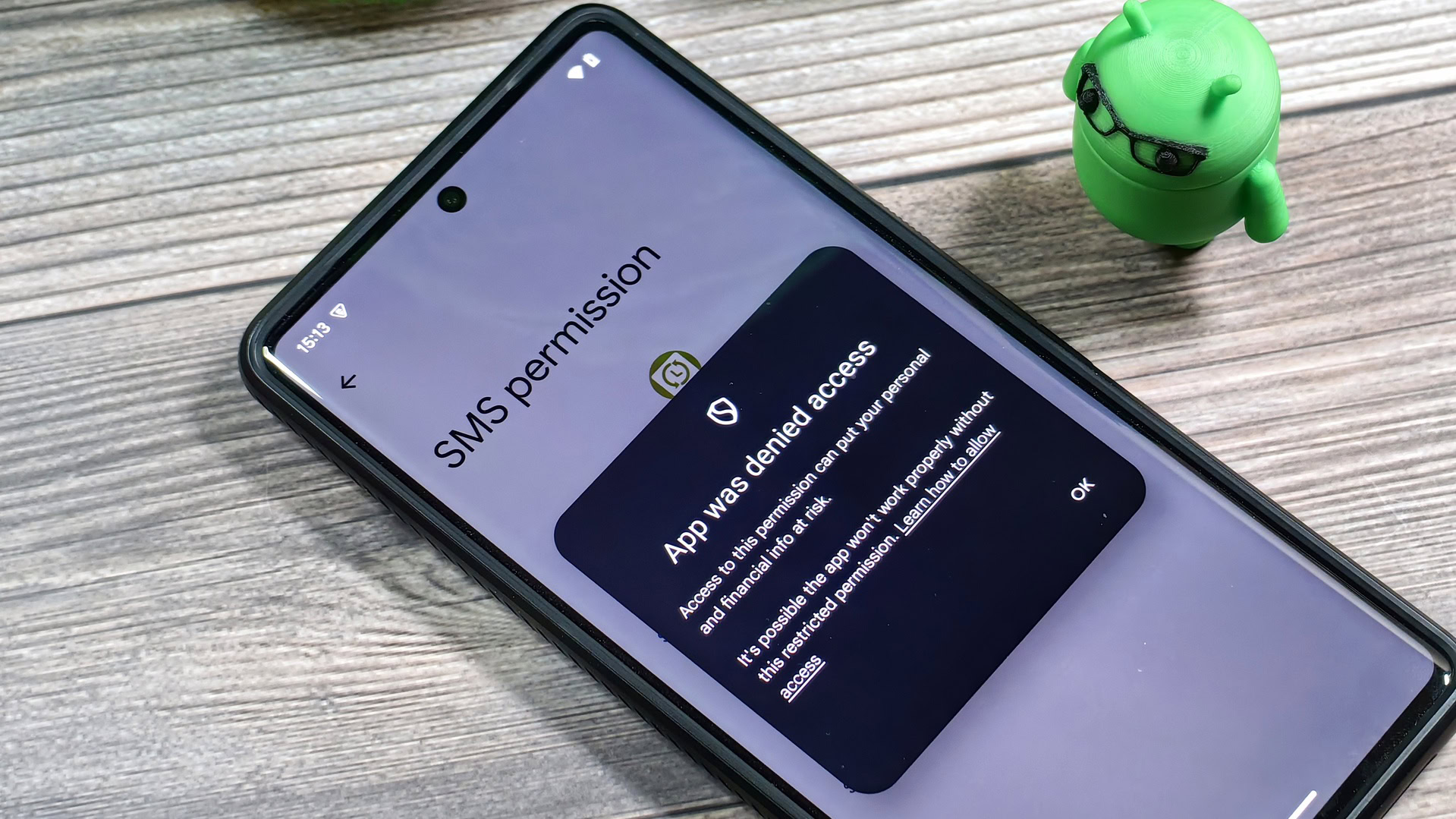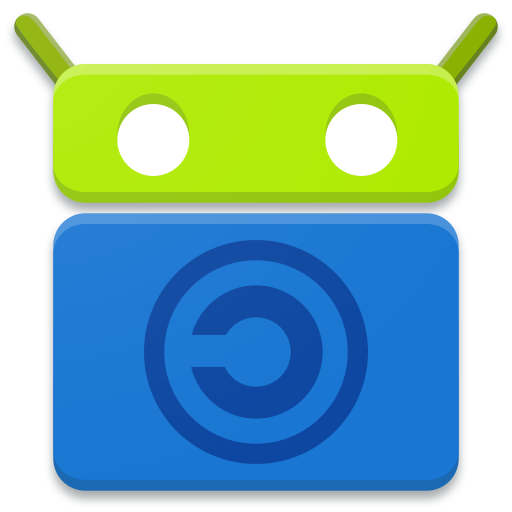Google Restricts Android Sideloading—What It Means for User Autonomy and the Future of Mobile Freedom – Purism
-
Maybe you should curb your enthusiasm a bit. have you seen what it take to unlock the bootloader from most manufacturers? you might even need your grandma's birth certificate before you're allowed to do so in the future
I am aware, but what choices do we have? I for one stopped using banking apps in my Android phone, not a big deal, we didn't have banking apps there pre 2007 right?
I know not everyone can do it, but we can fight back in our own ways.
And voting with your wallet should be an obvious statement at this point.
-
I am aware, but what choices do we have? I for one stopped using banking apps in my Android phone, not a big deal, we didn't have banking apps there pre 2007 right?
I know not everyone can do it, but we can fight back in our own ways.
And voting with your wallet should be an obvious statement at this point.
CalyxOS works with most banking apps, and is don't degoogled.
-
The problem comes when it's not an app you're using for the app's sake, but because it's the app of some company you have a real-world relationship with. Your bank's app being the most important one that comes to my mind, considering I've already heard about some banks trying to restrict users to only Google's flavour of Android before this.
Honestly other than a fingerprint lock, I've found the apps suck compared to just a browser on a PC anyhow. Half the apps could just be webpages, and a bunch of those are just wrappers to a web rendering layer anyhow
-
This post did not contain any content.
This sucks, I don't want a world where o have to carry around 2 devices (a private one and a standard spyware one)
-
This is an ad
Its a straight ad
-
This post did not contain any content.
This article is a thinly veiled ad paired with fearmongering to get gullible users to buy the shit phones they sell (or not, some people have been on "waitlists" for 5+ years after providing a full payment).
Granted, their phones are fully open, but have next to no apps.
Personally I'll stick with Android 12, rooted, and see what the future brings.
-
Aaaaand now I'm carrying around a laptop again, at least mini pcs are tiny now, maybe a small handheld would do...
if any of this shit hinders me, I'll get a dumb phone and the cheapest iphone available for manditory work-based things and say so-long to being a mobile OS user.
Just FYI, no, F-Droid will not be impacted.
Links in this comment explain, they are incorrect about how F-Droid works.
-
That doesnt appear to be true, the restriction seems to be on apps being installed from file managers, web browsers, messaging, etc.
F-droid and the like are not part of that list.
This still isn't good, but it doesnt stop you from having F-droid manage your messaging apps it would seem.
Edit: If you're down voting because you think its using the same method as a file manager as the user that replied to me, this is incorrect. This is also an issue going back several versions.
F-Droid uses a session installer method for 3rd party app stores, it does not use the same method as a file manager.
For an article about a similar issue brought up by similar restrictions in previous updates, you can refer to this article:

Android 15 cracks down on sideloaded apps even harder to protect users
Android 15 places new restrictions on what permissions sideloaded apps can be easily granted. Here's what you need to know.
Android Authority (www.androidauthority.com)
You can also refer to this thread in the F-Droid forums which covers this as well, from 2 1/2 years ago:

Sideloading restrictions or removal in future, how it effects fdroid?
recently there is rumour or fact about sideloading apps in android 14. google is making mandatory of minimum api or os version for all apps on google play store [ gps ] and perhaps it will give toast message [ warnin…

F-Droid Forum (forum.f-droid.org)
Which also includes a merged discussion from the last time this came up 9 months ago.
F-Droid has been using the session installer method for quite some time.
For what it's worth I use aurora store and have already noticed some apps refusing to open/work unless I reinstall them from the play store.
-
For what it's worth I use aurora store and have already noticed some apps refusing to open/work unless I reinstall them from the play store.
How did you install aurora store?
I'm curious because ive seen no issues with F-Droid (just had a few updates actually), and the F-Droid team have commented on this sort of approach before, including the method being used for installation.
I don't use aurora, so I'm not overly familiar.
-
That doesnt appear to be true, the restriction seems to be on apps being installed from file managers, web browsers, messaging, etc.
F-droid and the like are not part of that list.
This still isn't good, but it doesnt stop you from having F-droid manage your messaging apps it would seem.
Edit: If you're down voting because you think its using the same method as a file manager as the user that replied to me, this is incorrect. This is also an issue going back several versions.
F-Droid uses a session installer method for 3rd party app stores, it does not use the same method as a file manager.
For an article about a similar issue brought up by similar restrictions in previous updates, you can refer to this article:

Android 15 cracks down on sideloaded apps even harder to protect users
Android 15 places new restrictions on what permissions sideloaded apps can be easily granted. Here's what you need to know.
Android Authority (www.androidauthority.com)
You can also refer to this thread in the F-Droid forums which covers this as well, from 2 1/2 years ago:

Sideloading restrictions or removal in future, how it effects fdroid?
recently there is rumour or fact about sideloading apps in android 14. google is making mandatory of minimum api or os version for all apps on google play store [ gps ] and perhaps it will give toast message [ warnin…

F-Droid Forum (forum.f-droid.org)
Which also includes a merged discussion from the last time this came up 9 months ago.
F-Droid has been using the session installer method for quite some time.
But how do you install F-Droid after, say, a factory reset because you had to troubleshoot something?
-
How did you install aurora store?
I'm curious because ive seen no issues with F-Droid (just had a few updates actually), and the F-Droid team have commented on this sort of approach before, including the method being used for installation.
I don't use aurora, so I'm not overly familiar.
Apk from their gitlab page
-
But how do you install F-Droid after, say, a factory reset because you had to troubleshoot something?
No idea. Play Store then update itself via its at store rev? Preinstalled on a ROM? Via adb?
That said, all the link refers to is a few sample permissions (which would not include F-Droid from that list) and only via certain methods being downloaded. Or they have it wrong and its "opened from".
Its still shitty, but as of now I'm not sure if there is any impact to installing F-Droid, but I can say the method of installation has complied with previous versions of googles "protections" (as in forced limitations) and that appears to continue to be true.
-
Apk from their gitlab page
I wonder if it is because you added that way, rather than from f-Droid or something.
No idea. If I had a spare still running android (trying out postmarketos on a few devices) I'd like to give it a try. Maybe I'll spin up a VM.
What apps?
-
Maybe you should curb your enthusiasm a bit. have you seen what it take to unlock the bootloader from most manufacturers? you might even need your grandma's birth certificate before you're allowed to do so in the future
Certainly depends on where you live.
Unlocking a Samsung phone is trivial here.
-
agree completely. But I recently broke my phone screen, the usual Samsung green screen of death, and I wish I had that turned on to copy the data over lol.
If you can copy data over, then someone else can too. It's important to have backups. Maybe syncthing or some other home server will do nicely.
-
I wonder if it is because you added that way, rather than from f-Droid or something.
No idea. If I had a spare still running android (trying out postmarketos on a few devices) I'd like to give it a try. Maybe I'll spin up a VM.
What apps?
I don't think so, I actually updated it via f-droid before but resorted to sideloading the apk myself for faster updates.
I've noticed it so far for my apps: Tilla (subscription manager), ChatGPT, Poe
-
This sucks, I don't want a world where o have to carry around 2 devices (a private one and a standard spyware one)
Censorship strikes again.
-
This post did not contain any content.
Why is it so hard to "Don't be Evil"
-
This post did not contain any content.
"Purism makes premium phones..." Haaaaaaaaa

-
Why is it so hard to "Don't be Evil"
That would mean less money, at least in the short term, but also in the long term as it grants the user the autonomy of optionality, the power to choose some of Google's edicts. Really it's about the power to shape the choices of the users in the future. Take their power away. And in the future this will be conducive to leverage this power against the user for more money.
I asked the AI about it, in case anyone is curious
https://chatgpt.com/share/68454a70-5cd8-8005-8075-3579244f0ce4




